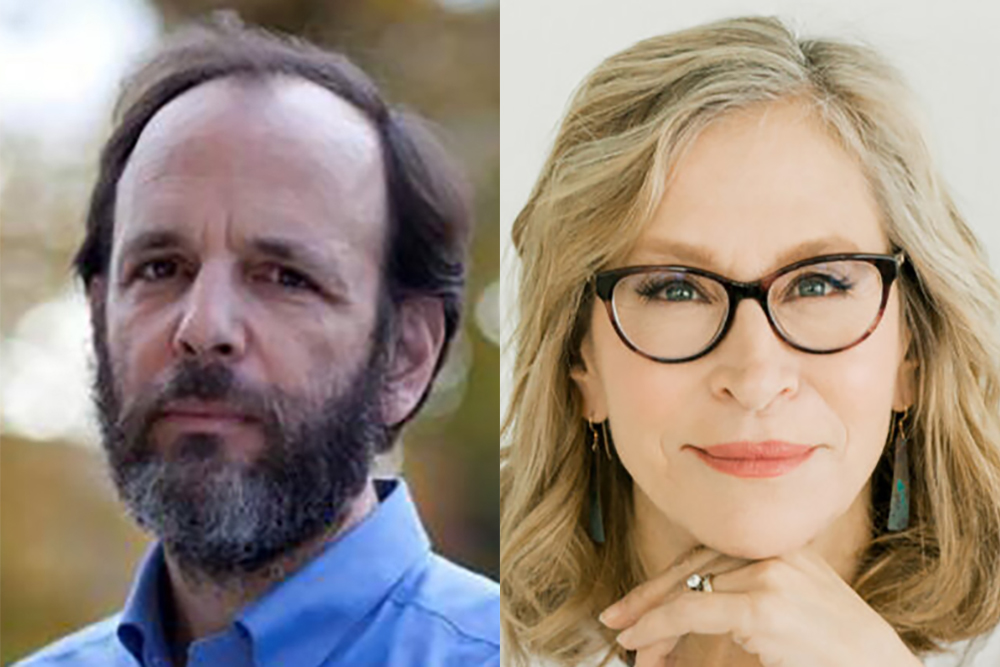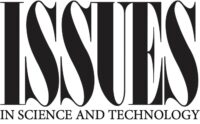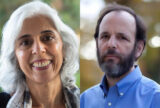
Photos courtesy of Molly Jahn and Daniel Sarewitz
Global security depends on everyone having enough food. Scientist Molly Jahn started her career inventing squashes and melons. But that work led her to wonder and worry about the security of our global food supply in the face of changing climate, growing population, and new forms of war. What does “food security” really mean in the 21st century? Why hasn’t food security been a bigger part of national security debate and planning? And what would you do if you realized, as Jahn did, that the long-term food security of the nation was not assured and that no one at the highest level of government was working on the problem? Jahn, who is now at the U.S. Defense Advanced Research Projects Agency (DARPA), and Issues in Science and Technology editor-in-chief Daniel Sarewitz visit Zócalo to discuss the possible paths to a future where food enough for all is assured.
Zócalo is proud to partner with Issues in Science and Technology, a quarterly journal published by the National Academies of Sciences, Engineering, and Medicine and Arizona State University, to present discussions focused on the intersection of science, technology and public policy.
The Takeaway
‘Equating Abundance With Stability’ Is an Existential Threat to the U.S. Food System
Agricultural Scientist Molly Jahn Explains How Our Food Supply Became a National Security Problem
Agricultural scientist Molly Jahn started her career inventing new varieties of squashes and melons. But that work led her to wonder and worry about the security of our global food …
Past Events in this Series
Meet the ‘Mediators’ Who Connect Scientists and the Public
Fossil Preparators Are a Panacea to a Closed-Off Field—And Their Work Offers a New Model for Research
How do colossal Tyrannosaurus rex and Triceratops fossils get from the ground to the natural history museum? And could that process—which involves not just paleontologists but a largely uncredited group …
Hello Blockchain, Bye-Bye Resumes
Could Digital Learning and Employment Records (LERs) Create a Fairer Hiring Process?
The resume has been around for hundreds of years, and is one of the most vital parts of the hiring process for workers, employers, and educators. But what resumes leave …
Scientists Don’t Have to Be Heroes
How NASA and ASU Astronomer Lindy Elkins-Tanton Is Dismantling the Personality-Driven Culture of the Research Laboratory
Two decades ago, NASA’s Psyche mission principal investigator and ASU Interplanetary Initiative vice president Lindy Elkins-Tanton was working toward her PhD at MIT. It was a place she loved, but …
How Can Inventors Respond to the Real-World Effects of Their Inventions?
A More Holistic Approach to the Field Can Make Technology Better for Society
What is it like to be an inventor? Are inventors responsible for the societal ramifications of their creations? And how could a more holistic approach to innovation lead future scientists …
How Will Robot Trucks Change American Life?
For All the Promise of Automotive Trucking, the Future of Our Freight System Has a Human Problem
Robotic trucks are beginning to roll out, carrying cargo and promises of revolutionizing freight hauling, reducing traffic, and lowering pollution. But previous waves of automation have eliminated millions of jobs …
Can Innovation Really Solve Society’s Problems?
To Reckon With Today’s Greatest Challenges, We Need to Rethink Innovation Itself
Since World War II, the United States has famously funded research to advance all fields of science and innovation, fueling new disease-fighting drugs, increasing economic productivity, and sparking an information …












